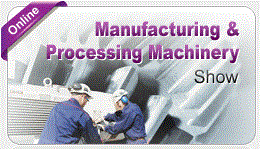The Machine Economy is Upon Us
- gtbmsbcs
- 2019年10月20日
- 讀畢需時 3 分鐘
The IOTA Foundation has been working on an IoT communication protocol that will enable machines to autonomously conduct transactions in a fee-free, secure, and trustworthy exchange.

We are on the verge of a major shift in the way we do business. Between artificial intelligence, edge computing and the Internet of Things (IoT), machines are getting “smarter.” So smart, that in the not too distant future they will be making decisions and conducting transactions between themselves without any human interference.
We’re entering the machine economy where the participants that produce and consume goods and services with one another are not people, but devices.
And in the era of “everything-as-a-service” from cars to computing power, it’s time machines get in the mix. And it’s not just for manufacturing as we have recently seen from companies like Pearson Packaging and Steamchain that are delivering machine-as-a-service (MaaS) options on expensive equipment that allows customers to pay for output. MaaS will also be present across supply chain logistics, renewable energy, and transportation, to name a few.
In order for universal machine-to-machine (M2M) transactions to happen, however, we must pull away from siloed solutions and move toward a common and trustworthy method of communication.
Enter IOTA.
In 2017, a new non-profit initiative called the IOTA Foundation was formed. It’s an international consortium of European universities and technologists that came together to create a protocol layer for IoT that defines how devices transact with each other using trusted data across the technology stack. Using open-source, fee-free, distributed ledger technology—which is the basis of blockchain—IOTA is building an autonomous and decentralized virtual market it calls the "Industry Marketplace" that:
Enables transactions across the manufacturing supply chain through systemic IoT micropayments from machine-to-machine.
Provides a standardized semantic language for consistency and security in the creation of smart contracts between machines.
Removes the expensive repetitive fee impacts of blockchain and its built in costs.
For the semantics, IOTA partnered with eCl@ss, which standardizes machine collaboration around attributes so that there is a base communication layer upon which to interact. The eCl@ss library attributes, which span 44 industry sectors and 16 languages, describe the capabilities of the machine and how to form contracts between machines.
“First, it makes sense to create a marketplace for future machine communication so that everyone can participate,” said Holger Köther, director of partner management at IOTA Foundation. “Second, there is a standardized semantic language for how machines communicate with each other.” If, for example, a production machine needs to purchase one ton of industry grade steel, it can describe that through the eCl@ss attributes so that other global machines immediately understand what it is looking for. Or, a washing machine may communicate about itself based on the attributes of height, width, weight, power consumption, etc.
“This first inception of the Industry Marketplace is the autonomous training between machines,”says Köther. The next step is adoption of this autonomous interaction between machines. “We are looking for partners. Companies that are interested in testing this out and contributing to the development…because we are not done with this yet.”
There are still things to work out, such as governance of the Industry Marketplace, integration with other applications and platforms, as well as figuring out how this will work in a diverse set of industries and scenarios. For example, IOTA Foundation recently partnered with ATX, the transportation system for the City of Austin, TX, in an effort to bring “smart mobility” to the city.
Beyond making everything “smarter,” the reason companies should be interested in participating in the Industry Marketplace is the cost savings associated with it. Specifically, if there is no human behind the tendering of a product or material—like in the steel example—and the machine has its own “wallet” and ability to communicate to other machines through a secure data exchange, then it streamlines the transaction, avoiding multiple interfaces and therefore saving money.
Industry 4.0 has opened the door to new opportunities, but what it really comes down to is the ability to leverage data as a valuable asset. To that end, the IOTA Foundation is working on having a sustainable model that allows companies to monetize their own data.
Source: Automation World





留言